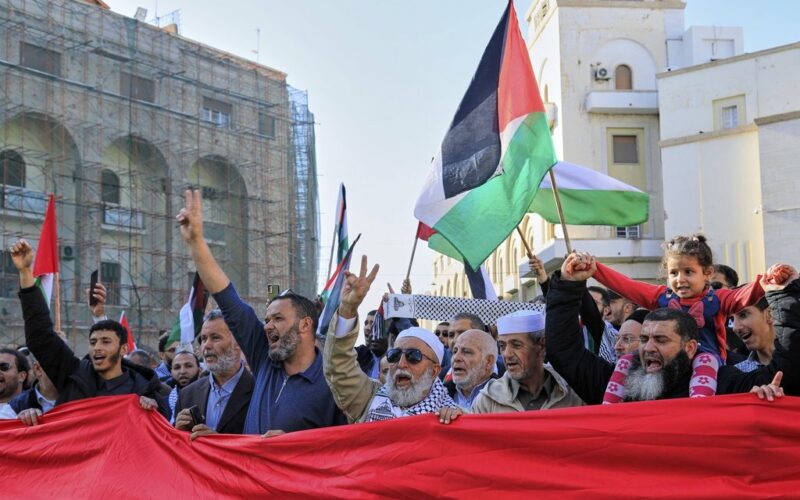UNITED NATIONS (AP) — The new U.N. envoy to Libya has underscored the volatile security situation in the oil-rich country, with political rivals and armed groups competing for control over territory and a recent surge in hate speech.
Hannah Tetteh told the U.N. Security Council on Thursday that the political crisis in the deeply divided North African country persists “due to competition for economic resources.”
She said fragmented institutions and lack of a unified budget have exacerbated the situation, causing economic instability. She pointed to Libya’s foreign exchange deficits, inflation and currency depreciation.
Libya plunged into chaos after an uprising toppled and killed longtime dictator Moammar Gadhafi in 2011. The country split, with rival administrations in the east and west backed by rogue militias and foreign governments.
Tetteh said that while a 2020 ceasefire agreement is largely holding, armed groups in the west are competing for territory, and “recent armed mobilizations in and around Tripoli have renewed concerns about a potential outbreak of violence in the capital.”
In the south, she said, the consolidation and restructuring of the Libyan National Army is fueling tensions with locals and resulted in heavy fighting and loss of lives in one village.
Tetteh said a dispute over holding presidential elections remains unresolved, and she urged the rival parties to find a compromise.
She said an advisory committee developing options to address contentious electoral issues, supported by the U.N. political mission she heads, is expected to submit a report on the way forward by the end of April.
Tetteh said the U.N. mission, known as UNSMIL, “will assess the options and use them as a foundation for forging consensus on the next steps of the Libyan-led and owned political process.”
On the economic front, Tetteh stressed the importance of maintaining the independence of key oversight institutions.
She backed suggestions that one of the top five international audit companies should conduct an audit of key Libyan state institutions. That followed the central bank devaluing Libya’s currency last week.
“This would provide clarity on the management of public finances and help address the lapses and shortcomings of these institutions,” Tetteh said.
She said a “tragic consequence” of Libya’s divided institutions is a vacuum for human rights violations.
“The recent surge in xenophobic and racist hate speech is alarming, as it incites violence against migrants, asylum-seekers, refugees and humanitarian organizations providing lifesaving support,” Tetteh said.
Earlier this month, Libyan authorities ordered 10 international aid organizations to suspend operations and close offices, accusing the groups of violating local laws by providing aid to African migrants.
“Portraying migrants as security threats has sparked demonstrations, mass arrests and a fatal shooting,” she said. “The targeting of humanitarian organizations, migrants, asylum-seekers and refugees must stop.”






